CANCELLED- Ariadne auf Naxos
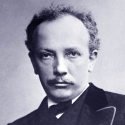
|
Richard StraussComposer |
Known informally as the “other Richard” or the “other Strauss,” Richard Strauss (1864 - 1949) rose to become the most important composer of German opera in the early 20th century. Strauss advanced melodic and harmonic theories, while at the same time looking over a sentimental shoulder toward the waltz king’s Viennese dramaturgy and stagecraft.
Strauss was Bavarian, born to a wealthy mother and a musical father. Franz Strauss, a noted horn player in the court orchestra, occasionally was called upon as a principal horn for Wagner’s operas at Bayreuth. Although he performed in a number of Wagner premieres, father Strauss considered the much-venerated composer’s music to be cacophonic and “modern,” discouraging his young son from paying it much attention. But Richard would not obey his father’s orders, and as a teen who had been studying music since age four, he was completely consumed by Tristan und Isolde.
Strauss had the good fortune to serve as assistant conductor to Hans von Bülow at Meiningen, which led to various postings in Munich, Bayreuth and Weimar. Eventually he would assume prestigious positions at the Berlin Court Opera and the Vienna State Opera, as well as conduct major orchestras around Europe and the Americas. To the early part of his career belong his famous works for the orchestra – the tone poems. The latter part of his career would be devoted almost exclusively to the voice, either in song or in opera.
To compose opera in Germany at the end of the 19th century was to follow the Wagnerian model, both writing one’s own libretto, then composing music to it. Strauss’ first opera, Guntram, was cast in that mold, complete with characters based on Teutonic history. It was not a huge success, but the opera received courteous acknowledgement from Giuseppe Verdi, to whom Strauss had sent the score. It was also during Guntram that Strauss announced his engagement to soprano Pauline de Ahna, who sang the leading female role at the premiere. Many found Pauline’s temperament to be tempestuous, even shrewish, but somehow, offset by the composer’s gentle manner, the marriage stood the test of time.
Strauss’ next opera, Feuersnot, was based on a bawdy Flemish legend and initiated a trend of indelicate themes that pervade many Strauss operas. The opera that followed, Salome, displayed full-blown sexuality and was his first big succès de scandale.
In 1900, when he first saw Oscar Wilde’s play Salomé, Strauss made an important contact with playwright Hugo von Hofmannsthal. Hofmannsthal’s own adaptation of Sophocles’ Electra later would impress the composer when he saw it in a Max Reinhardt production. Strauss set the play to music, and a fruitful artistic partnership was born. As Strauss elaborated, “Your style has so much in common with mine. We were made for each other, and we are sure to do fine things together if you remain faithful to me.”
Elektra was also a success but not quite to the same degree as Salome. Its relentless dramatic impetus and biting tonality may have been too barbaric for audiences of the day. For their next project, Strauss wanted a comedy in the vein of Mozart. Der Rosenkavalier, complete with basso buffo and en travesti (pants) roles undercut with a persistent Viennese waltz, easily fit the bill. It is perhaps their most popular and enduring work.
For the next collaboration, the librettist envisioned a new adaptation of Molière’s Le bourgeois gentilhomme, supported with incidental music by Strauss and followed by a short opera. The double bill failed to please, with the theater-going audiences being unreceptive to opera and vice versa. The work was revised considerably, jettisoning the Molière play and refashioning Ariadne auf Naxos into an opera-within-an-opera. The new version fared much better.
Hofmannsthal and Strauss’ next collaborations were varied in their themes and forms. Die Frau ohne Schatten is a Gozzi-esque fairy tale about a mythical empress who must procure a shadow in order to save her husband from turning to stone. Die ägyptische Helena concerns Helen of Troy’s post-war marital problems. Arabella was intended as another Viennese comedy, styled to become a second Rosenkavalier. It was to be their last collaboration. While dressing for his son’s funeral, Hofmannsthal died of a stroke, leaving the words for Arabella’s second and third acts in draft form. Strauss set the unfinished text as an homage to his colleague, and the opera premiered in 1933. Apart from Hofmannsthal, Strauss wrote and composed Intermezzo, based on a real-life misunderstanding between him and Pauline that almost led to divorce.
Much has been made about Strauss’ activities following the Nazi’s rise to power. The composer’s appointment by Joseph Gœbbels to the Reichsmusikkammer as its president and his decisions to conduct in place of Arturo Toscanini and Bruno Walter attracted criticism, though he emphatically stated it was for the sake of German music and not due to any political agenda.
Like many Jewish artists, Strauss’ next librettist, Stefan Zweig, suffered religious persecution, and their opera, Die schweigsame Frau (based on a play by Shakespeare contemporary Ben Jonson), encountered some difficulties as a result. Zweig chose to leave Germany but presented Joseph Gregor as a replacement and was still able to influence Strauss’ works from a distance. Together the new team produced Friedenstag, an opera set in 17th-century Austria at the end of the Thirty Years War; Daphne, a subject again steeped in mythology (and Strauss’ tip-of-the-hat to Peri’s Dafne, reportedly the first opera ever written); and Die Liebe der Danae, another mythical tale fusing the Greek legend of Danae with that of King Midas.
Capriccio was Strauss’ last opera, a “conversation with music” based on Giovanni Battista Casti’s 18th-century text for Antonio Salieri’s Prima la musica, e poi le parole. Its premiere occurred before Danae’s, however, as the considerably shorter Capriccio could be played before the nightly air raids commenced. Four years after the war and cleared by the denazification board, Strauss died in his sleep at his Bavarian villa. Pauline died one year later, just nine days before the premiere of Strauss’ monumental Four Last Songs.
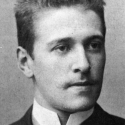
|
Hugo von HofmannsthalLibrettist |
Hugo von Hofmannsthal (1874 – 1929) was an Austrian prodigy, a novelist, librettist, poet, dramatist, narrator, and essayist.
Hofmannsthal was born in Landstraße, Vienna, the son of an upper-class Christian Austrian mother, Anna Maria Josefa Fohleutner, and a Christian Austrian–Italian bank manager, Hugo August Peter Hofmann, Edler von Hofmannsthal.
His great-grandfather, Isaak Löw Hofmann, Edler von Hofmannsthal, from whom his family inherited the noble title "Edler von Hofmannsthal", was a Jewish tobacco farmer ennobled by the Austrian emperor.
He began to write poems and plays from an early age. Some of his early works were written under pseudonyms, such as Loris Melikow and Theophil Morren, because he was not allowed to publish as a student. He met the German poet Stefan George at the age of seventeen and had several poems published in George's journal, Blätter für die Kunst. He studied law and later philology in Vienna but decided to devote himself to writing upon graduating in 1901. Along with Peter Altenberg and Arthur Schnitzler, he was a member of the avant garde group Young Vienna (Jung Wien).
In 1900 Hofmannsthal met the composer Richard Strauss for the first time. He later wrote libretti for several of his operas, including Elektra (1909), Der Rosenkavalier (1911) with Harry von Kessler, Ariadne auf Naxos (1912, rev. 1916), Die Frau ohne Schatten (1919), Die ägyptische Helena (1928), and Arabella (1933).
In 1901 he married Gertrud "Gerty" Schlesinger, the daughter of a Viennese banker. Gerty, who was Jewish, converted to Christianity before their marriage. They settled in Rodaun (now part of Liesing), not far from Vienna, and had three children, Christiane, Franz, and Raimund.
In 1911 he adapted the 15th century English morality play Everyman as Jedermann, and Jean Sibelius (amongst others) wrote incidental music for it. The play later became a staple at the Salzburg Festival.
During the First World War Hofmannsthal held a government post. He wrote speeches and articles supporting the war effort, and emphasizing the cultural tradition of Austria-Hungary. The end of the war spelled the end of the old monarchy in Austria; this was a blow from which the patriotic and conservative-minded Hofmannsthal never fully recovered.
Nevertheless, the years after the war were very productive ones for Hofmannsthal; he continued with his earlier literary projects, almost without a break. He wrote several new libretti for Richard Strauss operas. In 1920, Hofmannsthal, along with Max Reinhardt, founded the Salzburg Festival. His later plays revealed a growing interest in religious, particularly Roman Catholic, themes. Among his writings was a screenplay for a film version of Der Rosenkavalier (1925) directed by Robert Wiene.
On 13 July 1929 his son Franz committed suicide. Two days later, shortly after attending Franz's funeral, Hugo himself died of a stroke at Rodaun.

|
Steven WhiteConductor |
Praised by Opera News as a conductor who “squeezes every drop of excitement and pathos from the score,” Steven White is one of North America’s premiere operatic and symphonic conductors. He made his acclaimed Metropolitan Opera debut in 2010, conducting performances of La traviata starring Angela Gheorghiu. Since then he has conducted a number of Metropolitan Opera performances of La traviata, with such stars as Natalie Dessay, Hei-Kyung Hong, Plácido Domingo, Thomas Hampson, Dmitri Hvorostovksy and Matthew Polenzani. In the past several seasons he has returned to the Met to participate in critically fêted productions of Don Carlo, Billy Budd, The Rake’s Progress and Elektra.
With a vibrant repertoire of over sixty-five titles, Maestro White’s extensive operatic engagements have included performances with New York City Opera, L’Opera de Montréal, Vancouver Opera, Opera Colorado, Pittsburgh Opera, Michigan Opera Theater, Baltimore Opera, New Orleans Opera, and many others. In recent seasons he has conducted Rigoletto with San Diego Opera, Otello with Austin Opera, La traviata with Utah Opera, and a world premiere staged production of a brand-new Bärenreiter edition of Gounod’s Faust with Opera Omaha. In the 2021-2022 season, he returns to the Metropolitan Opera for their production of Tosca, which he also conducts for Utah Opera. With Opera Omaha he conducts Eugene Onegin, and he returns to Opera Roanoke for Bluebeard’s Castle in the fall and Verdi’s Requiem in the spring.
In 2020 the COVID-19 pandemic necessitated the cancellation of his eleventh production at Arizona Opera, Ariadne auf Naxos, as well as the company premiere of André Previn’s A Streetcar Named Desire at Opera Roanoke. Other projects in the 2020-21 season COVID-impacted season included a reimagined Rigoletto with Tulsa Opera at Tulsa’s ONEOK Field, and Le nozze di Figaro in a return to Opera Omaha (postponed).
Music critics are effusive in their praise of conductor Steven White’s ability to elicit inspired music-making from orchestras. Of his 2016 performances with the Omaha Symphony, the Omaha World-Herald asserts that, “it would be hard to imagine a more complete performance of the Symphonie Fantastique. Highly nuanced, tightly controlled and crisp, Steven White asked everything from orchestra members and they were flawless. He led them out of serene beauty into disturbing dissonance and even to the terrifying point of musical madness without ever losing control. It was insanely good.” Opera News declares, “White is amazing: he consistently demands and gets the absolute best playing from the orchestra.”
Among the many orchestras Maestro White has conducted are the Metropolitan Opera Orchestra, the Moscow Philharmonic, the Orchestre Métropolitain du Grand Montréal, the Mozarteum und Salzburg KulturvereinigungOrchestra, the Baltimore Symphony Orchestra, the New World Symphony Orchestra, the Spoleto Festival Orchestra, the Colorado Symphony, the Nashville Symphony Orchestra, the Columbus Symphony Orchestra, the Charleston Symphony, the Florida Philharmonic, the Fort Worth Symphony and London’s Philharmonia Orchestra for a CHANDOS recording of arias featuring his wife, soprano Elizabeth Futral. In 2019 he made debuts with the San Diego Symphony, the Utah Symphony Orchestra and the Williamsburg Symphony Orchestra.
Maestro White is a passionate and dedicated educator. He has served multiple artistic residencies and led productions at such institutions as the Peabody Conservatory of Music, Indiana University, the College Conservatory of Music at the University of Cincinnati, the University of Miami Frost School of Music Program in Salzburg, Kennesaw State University and Virginia Tech University. In the summer of 2019 he served as an artist in residence at the Shanghai Conservatory in China and in 2020 he led a critically acclaimed production of La clemenza di Tito for the North Carolina School of the Arts Fletcher Opera Institute. He is in constant demand as an adjudicator of the most prestigious music and vocal competitions, including numerous auditions for the Metropolitan Opera National Council and the Jensen Foundation.
Steven White proudly makes his home in Virginia, where he serves as Artistic Director of Opera Roanoke, a company with which he has been associated for two decades. Maestro White has conducted dozens of productions in Roanoke, including performances of Das Lied von der Erde, Der fliegende Holländer, Fidelio, Falstaff, Otello, Macbeth, Aida, Hänsel und Gretel and many others. In recognition of his contributions to the civic, cultural and artistic life of Southwest Virginia, Roanoke College conferred on Maestro White an Honorary Doctorate of Fine Arts in May 2013.

|
Chuck HudsonStage Director |
Chuck Hudson has directed opera productions at major international companies including Cape Town Opera (South Africa), Cincinnati Opera, Florida Grand Opera, Minnesota Opera, Atlanta Opera, Pittsburgh Opera, Austin Lyric Opera, Hawaii Opera Theatre, Seattle Opera, Wolf Trap Opera, Opera Santa Barbara, and San Francisco Opera Center among others. He has directed award winning theatre productions in New York and regionally, including The Pearl Theatre, The Chester Theater, Cape May Stage, The Children’s Theatre Festival of Houston, New City Theatre, and Chicago’s Fox Valley Shakespeare Festival. Chuck’s work as a director was mentioned in the January 2011 Edition of American Theatre Magazine and the October 2018 Edition of Classical Singer Magazine.
In addition to directing, Chuck continues to focus on work with young professional artists. He was a co-creator of Seattle Opera’s Young Artist Program where he directed productions as well as created and instructed specialized classes on Acting and Movement skills for singers. He has directed productions at San Francisco Opera’s Merola Program, Santa Fe Opera’s Apprentice Artist Program, Florida Grand YAP, Yale Opera, AVA Opera Theater, BU Opera Institute, USC-Thornton Opera, Carnegie-Mellon, Manhattan School of Music Opera Theater, Cincinnati Conservatory, Indiana University Opera Theatre, and Music Academy of the West. He was the Artistic Associate of La Lingua della Lirica for two seasons in Italy, a guest artist at S.I.V.A.M. in Mexico City and has been an annual Master Teacher at San Francisco Opera’s Merola and Adler Fellows programs for almost two decades. Chuck has most recently created a Certificate Training Program for Opera Stage Directors at Ithaca College, launching in 2022.
Chuck travels often to Australia to work with singers at The Melba Opera Trust in Melbourne, The Sydney Conservatorium, N.I.D.A., Opera Australia Young Artist Program, the Western Australia Academy of Performing Arts in Perth, and professional singers via the Opera and Arts Support Group. He directed the Australian Premiere of the German Opera by Goetz based on Shakespeare’s The Taming of the Shrew (at WAAPA), was a Guest Director at the Melbourne Conservatory of Music’s Opera Training Program, and presented public Showcases for professional singers at the residence of the American Consul General in Sydney for the Opera and Arts Support Group. The Dame Kiri Te Kanawa Foundation also invited Chuck to work with their singers in New Zealand for several seasons.

|
Rebecca NashAriadne April 3, 5 & 11 |
Lauded by the Seattle Times as a “passionate singing actor with a voice of considerable heft and power” and for her “fearless, thrilling high notes,” Rebecca Nash recently triumphed in her role and company debut as Senta in Der fliegende Holländer with Seattle Opera. In the 2019/20 Season, she joins Teatro Verdi Padua for the title role in Turandot, and sings the title role of Ariadne auf Naxos with both Arizona Opera and Calgary Opera. Last season, she made her Wiener Staatsoper and Theater Kiel debuts as the Färberin in Die Frau ohne Schatten. She also recently made her role debut as Turandot with Cedar Rapids Opera, sang Mendelssohn’s Elijah with the San Antonio Symphony, and joined both the Phoenix Symphony and Orchestra Iowa for Beethoven’s Symphony No. 9.
Nash sang her first performances of the Kaiserin in Die Frau ohne Schatten at the Ópera de Bellas Artes at the Festival del Centro Histórico de México, Amelia in Un ballo in maschera and the title role of Ariadne auf Naxos with West Green House Opera, Judith in Bluebeard’s Castle with the Virginia Symphony, the title role of Káťa Kabanová with Oper Köln and Miss Jessel in The Turn of the Screw in her American debut with Boston Lyric Opera followed by further performances with Central City Opera. She made her debut with the Lyric Opera of Chicago as vierte Magd in Elektra while covering Chysothemis and returned to the title for fünfte Magd in Elektra with Music Director Andris Nelsons conducting in both Boston and at Carnegie Hall. She has sang the Marschallin in Der Rosenkavalier with English National Opera, a role she later repeated, along with Cio Cio San in Madama Butterfly with Scottish Opera. She joined the Royal Opera House, Covent Garden as Barena in Jenůfa under Bernard Haitink (available as a commercial recording), fünfte Magd in Elektra under Semyon Bychkov, and for concert performances of Daphne under Stefan Soltesz. She repeated her roles in Jenůfa with Opéra de Lyon and Elektra with Donald Runnicles conducting a concert performance at the BBC Proms. Additionally, she covered Desdemona in Otello and the title role of Jenůfa for the Glyndebourne Festival as well as the title role of Arabella and Magda in La rondine for Opera North and joined the rosters of both the New York Philharmonic and New York City Opera for Erwartung. In her homeland, she made her debut with Opera Australia as the Countess in Le nozze di Figaro at the Sydney Opera House.
A prolific performer of concert repertoire, she has sung Strauss’ Vier Letzte Lieder with the Norrköping Sinfonieorchestra with Daniel Harding conducting and the Orchestra of the Scottish Opera; Una poenitentium in Mahler’s Symphony No. 8 and Stravinsky’s Les Noces at the Virginia Arts Festival; Beethoven’s Symphony No 9 with Gustavo Dudamel conducting the Orquesta Sinfónica Simón Bolívar, Caramoor International Music Festival, Orchestra of the Eighteenth Century, and Ulster Orchestra; Mendelssohn’s Elijah with Kurt Masur conducting the London Philharmonic Orchestra at the BBC Proms, Dvořák’s Mass in D also at the BBC Proms under Sir Andrew Davis; and Fauré’s Requiem with Graeme Jenkins conducting the Orchestre National de Lyon. Other concert performances for the soprano include Rachmaninoff’s The Bells with the Buffalo Philharmonic, Beethoven’s Egmont and Mass in C in addition to a concert of Mozart arias with the Scottish Chamber Orchestra, Mozart’s Mass in c minor with the Royal Liverpool Philharmonic Orchestra, Dvořák’s Requiem with the Danish Radio Orchestra, Mozart’s Coronation Mass with the RTVE Madrid, Verdi’s Requiem at Royal Albert Hall and in Guilford Cathedral, Beethoven’s Missa Solemnis with the West Australian Symphony Orchestra, Beethoven’s Ah Perfido! with the London Mozart Players, and a program of Mozart Ensembles with Sir Roger Norrington conducting at the BBC Proms. She has also joined the Orchestra of the Eighteenth Century for Beethoven’s Symphony No. 9 and Egmont on tour in Japan, France, Spain, the Netherlands, and in Hong Kong. She appeared at the Klavier-Festival Ruhr in recital with Graham Johnson and at the Scottish Chamber Orchestra’s Summer Evenings in the East Neuk series with Iain Burnside. She has also presented programs at the Bath Festival, St. John’s Smith Square in London, and for the Temple Square Concert Series in Salt Lake City, Utah.
Nash was the recipient of the Australia’s highest honor in singing, the Inaugural Dame Joan Sutherland Singing Award and won first prize at the Herald Sun Aria and Australia Singing Competitions. She studied at Monash University before receiving her Advanced Postgraduate Diploma in Opera from the Royal College of Music in London.

|
Felicia MooreAriadne April 4 & 12 |
American soprano Felicia Moore is recognized as a powerful and innovative emerging artist having made music in partnership with Alan Gilbert, Anne Manson, Yannick Nézet-Séguin, Speranza Scappucci, Gary Thor Wedow, and Brian Zeger among others. Moore already has earned praise through international competition and through her performance on numerous stages of North America. She recently earned an Artist Diploma in Opera Studies from The Juilliard School, and was named one of the winners of The Sullivan Foundation Competition.
In the current season, Felicia Moore makes her debut at Palm Beach Opera as Donna Elvira in Don Giovanni and joins the Las Vegas Philharmonic in performances of Beethoven’s Ninth Symphony. The 2017/18 season began with performances of Mrs. Grose in Britten's The Turn of the Screw at Opera Columbus in a new Stephen Wadsworth production and ended with a role debut as Donna Elvira in a new production of Don Giovanni at Heartbeat Opera directed by Louisa Proske. Her final Juilliard year included workshop selections from Tchaikovsky's Eugene Onegin with Alan Gilbert conducting the Juilliard Orchestra and Copland's Twelve Emily Dickinson Songs with pianist Brian Zeger at Juilliard's Songfest in Alice Tully Hall. She gave a recital at Lincoln Center as winner of Juilliard's Vocal Arts Honors Recital presenting a program of Sibelius, Wagner and Copland with pianist Chris Reynolds and offered the Juilliard Commencement Concert with a performance of Beethoven's Ah! Perfido, Op. 65 with Speranza Scappucci leading the Juilliard Orchestra. Felicia Moore spent the summer in Europe first as a Resident Artist in the Aix-en-Provence Festival's Mozart Académie and then as a participant of the International Meistersinger Akademie in Neumarkt, Germany under the tutelage of Edith Wiens.
Performances of recent years feature the title role in Juilliard Opera's production of Janáček's Katya Kabanova conducted by Anne Manson in a new production by Stephen Wadsworth, and a summer in San Francisco Opera’s Merola Opera Program, performing in the Schwabacher Summer Concert as Agathe in Der Freischütz, and as Elisabeth in Tannhäuser on the stage of the San Francisco Opera. Other performances include Rossini's Stabat Mater with the Chamber Orchestra of the Triangle in North Carolina, Mozart's Ch'io mi scordi di te? with the Juilliard Orchestra led by Gary Thor Wedow, and Strauss' Vier letzte Lieder with Alan Gilbert and the Juilliard Orchestra Lab.
Moore’s training has included resident artist apprenticeships at Des Moines Metro Opera, Opera Theatre of Saint Louis, Portland Opera, and the Ravinia Festival’s Steans Institute. Her work in these programs featured role preparations for First Lady in The Magic Flute, Alice Ford in Falstaff, Amelia in Un ballo in Maschera, Madame Lidoine in Dialogues of the Carmelites, Leonore in Fidelio, and the title role of Tobias Picker’s Emmeline.
Success in international vocal competition is demonstrated and supported by achievements in The Metropolitan Opera National Council Auditions, George London Foundation Competition, Licia Albanese-Puccini Foundation, Tenor Viñas International Singing Contest, Opera Index, and Fort Worth Opera's McCammon Voice Competition. Moore was awarded the Prix des Amis du Festival following her participation in the Aix-en-Provence Festival's Mozart Académie and she has been recognized with First Prize from The Jensen Foundation, Second Prize at the National Opera Association Competition, the Florence and Paul DeRosa Prize by The Juilliard School and by The Gerda Lissner Foundation, the Richard F. Gold Foundation, and the Wagner Society of New York.
Felicia Moore was awarded a 2018/19 Fellowship by Turn The Spotlight, a foundation created to identify, nurture, and empower leaders – and in turn, to illuminate the path to a more equitable future in the arts through mentorship by and for exceptional women, people of color, and other equity-seeking groups in the arts. She is a proud alumna of The Juilliard School, Mannes School of Music, and Westminster Choir College.
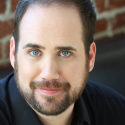
|
Corey BixBacchus |
Opera News has praised Corey Bix for his “clear sense of drama and self-possession, exhibiting sturdy, unwavering control, flinty resonance and confident high notes.” Bix is quickly becoming known for his stirring portrayals of dramatic tenor repertoire on both opera and concert stages across the globe. In the 2022/23 Season, Bix joins The Metropolitan Opera for their production of Der Rosenkavalier and brings his celebrated Bacchus to Arizona Opera in Ariadne auf Naxos. The 2021/22 Season saw him at Folks Operetta as Francois in Korngold’s rarely performed Die Kathrin, at Nashville Opera as Loge in Das Rheingold, and at San Francisco as Florestan (cover) in Fidelio.
Bix’s 2019/20 Season featured his role debut as Canio in I Pagliacci with El Paso Opera. In the 2018/19 Season, he made his role debut as Lohengrin with Opera Southwest, sang Judge Danforth in The Crucible with Opera Santa Barbara, the Kronprinz in Silent Night with Arizona Opera, covered the Hauptmann in Wozzeck at The Metropolitan Opera, sang the Hauptmann in Wozzeck and the Governor in Candide with Des Moines Metro Opera, and joined Opéra national de Paris for their production of Les Troyens.
Following Bix’s triumphant role debut as Énée in Les Troyens with San Francisco Opera, he returned to the company for Augustin Moser in Die Meistersinger von Nürnberg and for their production of Jenůfa. Bix has sung Bacchus in Ariadne auf Naxos with Washington National Opera, Vienna Volksoper, Fort Worth Opera, Badisches Staatstheater Karlsruhe, and The Glimmerglass Festival. Other notable engagements for Mr. Bix include Énée and Helenus in Les Troyens with Lyric Opera of Chicago; Max in Der Freischütz with Virginia Opera; his European debut and return to Greek National Opera as the Prince in Rusalka and the title role of Stravinsky’s Oedipus Rex; Erik in Der fliegende Holländer with Los Angeles Opera, Virginia Opera, Hungarian National Opera, and Arizona Opera; Kaiser in Die Frau ohne Schatten with Oper Graz; Walther in Die Meistersinger von Nürnberg with Theater Kiel; Flotow’s Alessandro Stradella with the Stadttheater Giesen; Heinrich in Tannhäuser. He has sung both Florestan in Fidelio and Lennie in Of Mice and Men with Utah Opera, Austin Opera and Tulsa Opera, Sir Edgar Aubry in Der Vampyr with New Orleans Opera, Aegisth in Elektra with Des Moines Metro Opera, and Alfred in Die Fledermaus with Anchorage Opera. He sang the First Senator and covered Albiano in Die Gezeichneten under the baton of James Conlon at Los Angeles Opera and sang Don Jose in Carmen with the Aspen Opera Theater with Julius Rudel conducting.
On the concert stage, Bix has joined the Centro Nacional de las Artes in Mexico City for Mahler’s Das Lied von der Erde, The Cleveland Symphony for their production of Daphne, the American Symphony Orchestra for Szymanowski’s Symphony No. 3, Pharaoh in Dessau’s Hagadah shel Pessach and as Phoebus de Chateuoers in Schmidt’s Notre Dame, the Cathedral Choral Society for Janáček’s Glagolitic Mass at the National Cathedral in Washington D.C., and Palm Beach Symphony for Mozart’s Requiem. He has sung excerpts of Die Meistersinger von Nürnberg with Bard Music Festival, excerpts from Die Walküre and Die Meistersinger von Nürnberg with the Wagner Society of Washington D.C., the 4th Jew in Salome with Yannick Nézet-Séguin and the Philadelphia Orchestra, and presented recitals for the George London Foundation, the Wagner Society of New York, and at his alma mater, Simpson College.
Corey Bix is the 2008 winner of the Robert Lauch Memorial Grant from the Wagner Society of New York and the 2007 winner of the George London/Kirsten Flagstad Award for a singer with potential for a Wagnerian career, as well as the foundation’s prestigious Vienna Prize. Additionally, he has won awards in the New England and Southeast regions of the Metropolitan Opera National Council Auditions. He is a former member of the apprentice programs of the Santa Fe Opera, Florida Grand Opera, Glimmerglass Opera, and Des Moines Metro Opera, and earned a Master of Music from New England Conservatory and his Bachelor of Music from Simpson College.

|
Nicole HaslettZerbinetta April 3, 5 & 11 |
Hailed by the New York Times for her “technically accomplished coloratura” as well as, “floating lyricism,” soprano Nicole Haslett makes her Opera Hong Kong debut as Gilda in Rigoletto, and later this season returns to the company for her role debut as Ophélie in Thomas’ Hamlet in the 2019/20 Season. She also returns to the role of Zerbinetta in Ariadne auf Naxos with Arizona Opera, makes her role debut as Ännchen in Der Freischütz with Heartbeat Opera, and returns to the Deutsche Oper Berlin as the Shephard in Dinorah. Last season, Haslett created the role of Kristina in the world premiere of Detlev Glanert’s Oceane with Deutsche Oper Berlin, in addition to joining the company for the 4th Blumenmädchen in Parisifal and Hirt in Tannhäuser. She also made her Toronto Symphony debut in performances of Carmina Burana under Maestro Donald Runnicles, and returned to the Metropolitan Opera for their production of Nico Muhly’s Marnie.
A frequent presence at Deutsche Oper Berlin, her recent roles with the company have included Adele in Die Fledermaus under Maestro Donald Runnicles, Berthe in Le prophète, Semele in Die Liebe der Danae, Papagena in Die Zauberflöte, First Niece in Peter Grimes, and Frasquita in Carmen. Other recent performances include her role debut as Zerbinetta in Ariadne auf Naxos with the Berkshire Opera Festival, her first performances of Gilda in Rigoletto in her company debut with the Lyric Opera of Kansas City, Adele in Die Fledermaus with Cincinnati Opera, Chloé in Offenbach’s Daphnis et Chloé with Heartbeat Opera, and Sophie in Picker’s Emmeline and Echo in Smetana’s The Kiss with Opera Theater of Saint Louis. She also joined the roster of the Metropolitan Opera for their production of Iolanta and the Lyric Opera of Chicago for Lucia di Lammermoor. As a young artist, she sang Nannetta in Falstaff with Martina Arroyo’s Prelude to Performance, Sarah and the cover of the title role of The Ballad of Baby Doe with Chautauqua Opera, and Susanna in Le nozze di Figaro with Opera in the Ozarks. She is also a former Resident Artist of Portland Opera. In the summer of 2012, she spent six weeks in Beijing with the I SING BEIJING program and in the following spring, she was presented by the program as a featured singer in a concert of Yan Jinxuan’s ⽩⽑⼥ (The White-Haired Girl) at New York’s Alice Tully Hall. Recent concert performances include Handel’s Messiah with the New Choral Society.
She was a 2014 Metropolitan Opera National Council Auditions grand finalist and sang excerpts of Zerbinetta from Ariadne of Naxos and Nannetta from Falstaff conducted by Marco Armiliato on the famed company’s stage. She is a 2015 second place winner of the Gerda Lissner International Vocal Competition and Encouragement Award winner of the George London Foundation Competition. In 2012, she was Alan M. and Joan Taub Ades Vocal Competition winner and Career Bridges Grant winner. She holds a Master of Music in vocal performances from the Manhattan School of Music, at which she sang Florestine in Corigliano’s The Ghosts of Versailles as well as Eva in Haydn’s Die Schöpfung conducted by Kent Tritle. Her performance credits at New York University, from which she earned her Bachelor of Music, include Despina in Così fan tutte and Jennie Parsons in Weill’s Down in the Valley in addition to winning the Excellence in Vocal Performance Award.

|
Katrina GalkaZerbinetta April 4 & 12 |
The Oregonian praises soprano Katrina Galka for her recent performances of Adina in L’elisir d’amore, exclaiming that she “looked like a young Glenn Close, projecting power over Nemorino as she thrilled with fine coloratura filigree and pure high notes.” In the 2020/21 Season, she makes her role and company debut as Olympia in Les contes d’Hoffmann at the Opernhaus Zürich as well as sings a solo digital recital for Portland Opera. Her San Francisco Opera debut as Janine (Ofwarren) in Ruder’s The Handmaid’s Tale was unfortunately cancelled by the COVID-19 pandemic, as were the roles she added to her repertoire last season: Zerbinetta in Ariadne auf Naxos and the Charmeuse in Thais for performances at Arizona Opera and Utah Opera. In the first half of last season, she returned to the Wiener Staatsoper to reprise Fritzi in Staud’s Die Weiden following her debut with the company in the work’s world premiere in the season prior. She sang her first performances of the Controller in Dove’s Flight with Minnesota Opera and returned to the Las Vegas Philharmonic for Handel’s Messiah.
Galka recently role and company debuts as Blondchen in Die Entführung aus dem Serail with Atlanta Opera—followed by reprisals at New Orleans Opera and Opera San Jose, Atalanta in Xerxes at the Glimmerglass Festival, and Serpetta in La finta giardiniera with On Site Opera at the Caramoor International Music Festival, and Aithra in Die ägyptische Helena with Odyssey Opera. She sang her first performances of Gilda in Rigoletto in a return to Portland Opera, where she was previously a resident artist and host of role debuts that include Adina in L’elisir d’amore, Johanna in Sweeney Todd, Elvira in L’italiana in Algeri, Papagena in Die Zauberflöte, and Frasquita in Carmen. With Arizona Opera Opera, she sang Cunegonde in Candide, Rosina in Il barbiere di Siviglia, Woglinde in Das Rheingold, and a quartet of roles in Morganelli’s Hercules vs Vampires, the First Wood Nymph in Rusalka and Clorinda in La cenerentola as a resident artist. She joined the Seiji Ozawa Music Academy as a guest artist for Frasquita in Carmen and sang prior performances of Papagena in Die Zauberflöte with Opera Theatre of Saint Louis at which she has been both a Festival Artist and a Gerdine Young Artist. She joined the CoOperative Program as Marie in La fille du régiment and sang the Cat in Schuller’s The Fisherman and his Wife with Odyssey Opera and the Boston Modern Orchestra Project. She also joined Dallas Opera as Voice I in Cuomo's Arjuna's Dilemma, presented as the company hosted the annual Opera America conference.
On the concert stage, she has joined the Rhode Island Civic Chorale for the Angel in Respighi's Laude to the Nativity and Handel's Messiah and returned to the latter previously with the Las Vegas Philharmonic. With the Florida Orchestra, she sang Bernstein favorites in a concert celebrating his work on Broadway. She sang Elvira in excerpts of L’italiana in Algeri with the Oregon Symphony and Violetta in excerpts of La traviata with the Metropolitan Youth Symphony. With various Dallas-based chamber ensembles and orchestras, she has sung Fauré’s Requiem, Mozart’s Exsultate Jubilate, and Bach’s St. John Passion. In 2011, Katrina performed in the east coast premiere of Jake Heggie’s Pieces of 9/11 as the Girl Soprano, with Mr. Heggie at the piano.
Galka is a three-time regional award winner in the Metropolitan Opera National Council Auditions. She is the first-place winner of the Mario Lanza Scholarship and has received further awards from the National Opera Association Vocal Competition, Marcello Giordani International Vocal Competition, and the Heida Hermanns International Vocal Competition.
She holds a Master of Music from Boston University, at which she sang Servilia in La clemenza di Tito, Carolina in Il matrimonio segreto, and Rosalba in Catan’s Florencia en el Amazonas. She earned a Bachelor of Music from Southern Methodist University, from which she graduated summa cum laude.

|
Jennifer Johnson CanoKomponist |
Jennifer Johnson Cano has garnered critical acclaim for performances of both new and standard repertoire; lauded by The New York Times for her “rich-toned mezzo-soprano” voice and by Opera News as a “matchless interpreter of contemporary opera.”
In summer 2023, Cano performs Mozart’s Requiem with the Philadelphia Orchestra and Bravo! Vail Festival Chorus under Yannick Nézet-Séguin and can be heard in concert with the Santa Fe Chamber Music Soceity and Music from Angel Fire. Her 2023/24 Season highlights include performances as Mistress Quickly in Falstaff at Houston Grand Opera; appearances with the Chamber Music Society of Lincoln Center, Dallas, Chicago, Pittsburgh, San Francisco, and National Symphonies; the Philadelphia premiere of Marc Neikrug’s A Song by Mahler with the FLUX Quartet. Next summer, she inaugurates the role of Michele in the World Premiere of Gregory Spears’s The Righteous with Santa Fe Opera.
Cano undertakes a balance of orchestral, opera and chamber music performances each season. She has collaborated on numerous projects with the Cleveland Orchestra and Franz Welser-Möst as well as the Los Angeles Philharmonic and Gustavo Dudamel in both the US and Europe. She has performed with the New York Philharmonic in both New York and Vail; Pittsburgh Symphony under Manfred Honeck; Philadelphia Orchestra and Yannick Nézet-Séguin; the Chicago Symphony and Riccardo Muti; and Atlanta Symphony under Nathalie Stutzman.
Highlights of Cano’s operatic career have included performing the roles of Donna Elvira, Carmen, and Offred with the Boston Lyric Opera; The Fox in The Cunning Little Vixen with the Cleveland Orchestra; the Mother, Dragonfly, and the Squirrel in L'enfant et les sortilèges with the San Francisco Symphony; performances of El Niño with John Adams and the London Symphony Orchestra; Carmen with the New Orleans Opera; and Orphée with the Des Moines Metro Opera and Opera Theatre of Saint Louis. She has appeared in more than 100 performances on the stage at The Metropolitan Opera since her debut in the 2009/10 Season, most recently in the roles of Nicklausse, Emilia, Hansel, and Meg Page. Cano debuted the role of Virginia Woolf in the World Premiere of Kevin Puts's The Hours with the Philadelphia Orchestra about which The Philadelphia Inquirer wrote, “Every word was clear both in content and intention, and her mezzo-soprano tone was deeply alluring.”
Other recent roles have included Mother Marie in Poulenc's Dialogues of the Carmelites with Houston Grand Opera; Judith in Bartók's Bluebeard's Castle with Roanoke Opera; Donna Elvira with the Atlanta Opera; and Celeste in the World Premiere of Gregory Spears's Castor and Patience with Cincinnati Opera.
A native of St. Louis, Cano earned degrees from Rice University and Webster University, where she was honored as a distinguished alumna and commencement speaker in May 2017. Her debut recital recording with pianist Christopher Cano, “Unaffected: Live from the Savannah Voice Festival,” was recorded live and unedited. She sings as a soloist on a live recording of Beethoven's Symphony No. 9 with Manfred Honeck and the Pittsburgh Symphony and in Bernstein's Symphony No. 1 "Jeremiah" with Marin Alsop and the Baltimore Symphony Orchestra. She also recorded Mahler's Das Lied von der Erde with St. Luke's Chamber Ensemble.
Cano joined the Lindemann Young Artist Development Program at The Metropolitan Opera after winning the Metropolitan Opera National Council Auditions. Among her honors are Winner of the Young Concert Artist International Auditions, a Sara Tucker Study Grant, a Richard Tucker Career Grant and a George London Award.
“Dramatic intelligence and imagination suffused every note of Ms. Johnson Cano’s performance. Endowed with an attention-grabbing dark mezzo, its depths bracing like strong coffee, she seems to thrive in the role of a storyteller.” — The New York Times
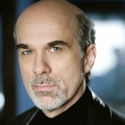
|
Mark SchnaibleMusiklehrer |
Described by Das Opernglas as “a strong, rich and warm-colored voice with assured style,” Mark Schnaible returns this season to Arizona Opera as Don Alfonso in Così fan tutte. His recent appearances include Klingsor in Parsifal with Indiana University Opera, and the title role in Bluebeard’s Castle with the Columbus Symphony, Bartolo in Le nozze di Figaro with Arizona Opera, reprise performances of Pere Joseph in the acclaimed production of Gounod’s Der Rebell des Königs (Cinq Mars) and Méphistophélès in Faust with Oper Leipzig, Musiklehrer in Ariadne auf Naxos and the Police Sergeant in Pirates of Penzance with Palm Beach Opera, and returning to the Metropolitan Opera for their new productions of Guillaume Tell and Lulu.
Schnaible’s other recent performances include Friedrich in Das Liebesverbot and Méphistophélès in Faust with Oper Leipzig with repetitions of the latter at the Teatro Comunale Bolzano, Orest in Willy Decker’s production of Elektra with Polish National Opera; Der Wanderer in Siegfried with Kent Nagano conducting and the Four Villains in Les contes d’Hoffmann in a production directed by Nicholas Joel with Den Nye Opera; Jochanaan in Salome with Edmonton Opera and Cedar Rapids Opera Theater; Escamillo in Carmen with New Orleans Opera and the Saarbrücken Radio Symphony Orchestra; Nick Shadow in The Rake’s Progress, Pizarro in Fidelio, Ferrando in Il trovatore, and the title role in Giulio Cesare with Utah Opera; Friedrich in the North American stage premiere of Das Liebesverbot and the Count in Le nozze di Figaro with Glimmerglass Opera; Biterolf in Robert Carsen’s production of Tannhäuser conducted by Seiji Ozawa at Tokyo Opera Nomori; the title role in Sweeney Todd and Scarpia in Tosca with Portland Opera, Dayton Opera, and Shreveport Opera; and Mephistofeles in Faust with Shreveport Opera and El Paso Opera.
He has sung numerous leading roles with Theater Lübeck including the Four Villains in Les contes d’Hoffmann Dr Schön in Lulu, both directed by Anthony Pilavachi as well as the title role in Der fliegende Holländer, Seven Antagonists in Death in Venice, Orest in Elektra, Pizarro in Fidelio, Capulet in Roméo et Juliette, Raimondo in Lucia di Lammermoor, and Lorenzo in I capuleti e i Montecchi. Additional recent performances include Leporello in Don Giovanni with Boston Baroque and Utah Opera; Colline in La bohème with Oper Kiel; the title role in Gianni Schicchi and Rambaldo in La rondine with Opera Tampa; Ariodate in Xerxes with Boston Baroque; Don Alfonso in Così fan tutte with Shreveport Opera; Capulet in Roméo et Juliette with New Orleans Opera; as well as the Huntsman in Rusalka with Christoph Eschenbach at the Schleswig-Holstein Music Festival and with Franz Welser-Möst at the Opernhaus Zurich. A past winner of the prestigious Marseille International Opera Competition, the bass-baritone subsequently sang Figaro in Le nozze di Figaro with Opera d’Avignon and Metz Opera and joined the Choregies d’Orange Festival under Bertrand de Billy for Baron Douphol in La traviata and for Carmen under Michel Plasson. He also also previously joined the Metropolitan Opera roster for its production of Die Meistersinger von Nürnberg.
He is equally at home with the concert repertoire having recently sung Bizet’s Clovis et Clotilde with Les Flaneries Musicales de Reims and Jean-Claude Casadesus and in subsequent performances with the same conductor and the Orchestre National de Lille (released on the Naxos label). Other concert performances include Bluebeard’s Castle with Utah Symphony and excerpts of Boito’s Mephistopheles with Dayton Opera; Brahms’ Ein deutsches Requiem with the Utah Symphony, North Carolina Symphony, and Sioux City Symphony; previous performances of Beethoven’s Symphony No. 9 with Edo de Waart conducting the Hong Kong Philharmonic, Jacques Lacombe conducting the Lorraine Philharmonic, as well as with the Nashville Symphony and Memphis Symphony Orchestra; Verdi’s Requiem with the Orchestre National d'Île de France; Saint-Saens’ Christmas Oratorio with the Winterthur Philharmonic; Beethoven’s Mass in C with the Hartford Symphony; Dvořák’s Te Deum with the Utah Symphon;, and Fauré’s Requiem with the Heidelberg Philharmonic and Lorraine Philharmonic. He has sung Bach’s St. Matthew Passion with the Lübeck Philharmonic Orchestra, St. John Passion with the Heidelberg Philharmonic, and Mass in B minor with the Würzburg Symphony Orchestra; Berlioz’s Messe Solenelle also with the Heidelberg Philharmonic and his Lélio, ou le retour à la vie with the Lübeck Philharmonic Orchestra; and Handel’s Utrecht Jubilate with the Sioux City Choral Union, Judas Maccabeus with the Octavo Singers in Albany, Messiah with the Jerusalem Symphony and El Paso Symphony; Mendelssohn’s Elijah with Seiji Ozawa conducting at the Saito Kinen Festival as well as with the Nuremberg Philharmonic Orchestra, with which he also sang the composer’s St. Paul; Mozart’s Mass in C minor with the Quad Cities Symphony, Requiem with the Harrisburg Symphony, and Vesperae Solemnes with the Buena Vista Symphony; and Haydn’s The Creation with the Jerusalem Symphony Orchestra conducted by David Stern and Utah Symphony conducted by Jeffrey Kahane and The Seasons with the Poitou-Charentes Orchestre. He also joined the Sioux City Chamber Music Association in his home state of Iowa for a recital of Brahms’ Vier ernste Gesänge in addition to works by Handel, Duparc, and Kohn.

|
Rodell RoselDancing Master / Scaramuccio |
Rodell Rosel is a guest of the major opera companies in the U.S. Following his debut at the Lyric Opera of Chicago as Remendado in Carmen, he has appeared on their stage as the Prince and Man Servant in Lulu, Spoletta in Tosca, the First Priest in The Magic Flute, Borsa in Rigoletto and as Faninal’s Major-domo in Der Rosenkavalier, Altoum in Turandot and the Second Jew in Salome, Bardolph in Falstaff, Ruiz in Il Trovatore, Benvoglio in Roméo et Juliette, Dr. Blind in Die Fledermaus, the Four Servants in The Tales of Hoffman and Monastatos in The Magic Flute.
For The Metropolitan Opera, he has appeared as Valzacchi in Der Rosenkavalier conducted by James Levine and as Nathaniel and Franz in their new production of The Tales of Hoffmann.
Elsewhere, he has appeared with Los Angeles Opera, Pittsburgh Opera and Tulsa Opera as Goro in Madama Butterfly, Houston Grand Opera as Squeak in Billy Budd, Dancing Master in Ariadne auf Naxos, and Goro, Wolf Trap Opera as the Governor in Candide and the Dancing Master in Ariadne auf Naxos, the Florentine Opera as Monastatos in The Magic Flute, Little Bat in Susannah, and in the title role of Albert Herring, Santa Fe Opera in the world premiere of The Letter, the Ravinia Festival as Curzio in The Marriage of Figaro, Spoletta in Tosca and Arbace in Idomeneo, The Dallas Opera as Anthony Candolino in the world premiere of Heggie’s Great Scott, and the Cleveland Orchestra as the 1st Jew in Salome.
In recent seasons, he has appeared with Los Angeles Opera as Spoletta, Monastatos, and Bardolph, and with Houston Grand Opera as Mime in Das Rheingold and Siegfried. Future seasons see him back in Chicago as Valzacchi and Monastatos, Los Angeles as the 1st Jew in Salome and as Spalanzani in Les Contes d’Hoffman, and debut apprearances with Seattle Opera as Monastatos and Goro
Formerly a member of the Ryan Opera Center (formerly Lyric Opera Center for American Artists), the Manila native studied at the University of California in Los Angeles, where he sang the title role in Britten’s Albert Herring and leading roles in Mozart, Rossini and Ravel, also appearing as tenor soloist in The Creation, Messiah and the Mozart Requiem. He has sung Basilio in The Marriage of Figaro at Music Academy of the West in Santa Barbara, CA, as well as Monostatos in The Magic Flute, Kaspar in Amahl and the Night Visitors, and Tinca in Il Tabarro, all with Opera Nova-Santa Monica.
In addition to his award from the Metropolitan Opera, Rosel has received a third-place award from the Palm Beach Opera Vocal Competition, a second-place award at the Lotte Lenya Vocal Competition, and was a finalist at the Loren Zachary National Vocal Competition. He is the recipient of scholarships from, among others, The National Academy of Recording Arts and Sciences.

|
Rob McGinnessHarlekin |
Recognized for his “impressive singing … well-supported tone and supple phrasing,” (Baltimore Sun) baritone Rob McGinness‘ recent venue debuts include Stern Auditorium at Carnegie Hall and the Kennedy Center Concert Hall. This season Rob joins Arizona Opera as a member of the Marion Roose Pullin Arizona Opera Studio, performing multiple roles including Schaunard in La Bohème, Harlekin in Ariadne auf Naxos and the lead role in Shining Brow, Darren Hagen’s opera about Frank Lloyd Wright. Other highlights this season include Orff’s Carmina Burana with the Maryland Symphony Orchestra.
Often featured portraying opera’s “bad boy,” Rob’s operatic credits include the title roles in Eugene Onegin and Don Giovanni, as well as Marcello in La Bohème. Rob has made a specialty in Russian repertoire, performing leading roles in Rimski-Krosakov’s Tsar’s Bride, Mozart and Salieri, Snow Maiden, Sadko as well as Tchaikovsky’s Iolanta. Other famous roles include Enrico in Lucia, Count Almaviva in The Marriage of Figaro, and Eisenstein in Die Fledermaus, a performance lauded for a “bright baritone and winning jitteriness” by the Cleveland Plain Dealer.
As a featured soloist, Rob performed Mahler’s Songs of a Wayfarer, the Duruflé Requiem with the Peabody Symphony Orchestra, and the Brahms Requiem with Portsmouth Pro Musica. Other concert credits include Carmina Burana with Columbia Pro Cantare and Brahms’s Requiem with The Washington Chorus, where Rob’s performance was lauded by the Washington Post for his “warm baritone.”
Committed to promoting and performing new works, Rob regularly premieres new roles, including Ed Wall in Frances Pollock’s award-winning opera Stinney, and Saul Hodkin/Price in The Ghost Train by Paul Crabtree. Rob’s own compositions include vocal, theatrical and orchestral pieces premiered at IngenuityFest, Andy’s Summer Playhouse, and by the Windham Orchestra in Vermont.
Rob holds degrees from Oberlin Conservatory and the Peabody Institute, and was a young artist with Pittsburgh Festival Opera, Teatro Nuovo, and Bel Canto at Caramoor. His awards include first place in the Sylvia Greene Vocal Competition, second place in the Piccola Opera Competition, and the Patricia A. Edwards Award in the Annapolis Opera Vocal Competition.

|
Bille BruleyBrighella |
Praised by the Huffington Post for his “ringing high notes,” Texas-born tenor Bille Bruley has garnered attention for his strength and versatility in operatic repertoire from baroque to contemporary.
Bille’s 21/22 season is highlighted by role/house debuts in Mason Bates and Mark Campbell’s The (R)evolution of Steve Jobs (Steve Wozniak) with Austin Opera, Lyric Opera of Kansas City, and The Atlanta Opera. He will also return to Arizona Opera for Così fan tutte (Ferrando).
Recently he joined the roster of Lyric Opera of Chicago Dead Man Walking to cover Father Grenville and Howard Boucher and returned to Arizona Opera for Shining Brow (Louis Sullivan) and Riders of the Purple Sage (Bern Venters). Highlights from previous seasons include Britten’s War Requiem with the Tulsa Symphony, a program of Mozart arias with the Phoenix Symphony, and a return to The Santa Fe Opera, where he created the role of Benjamin in the world premiere of Poul Ruders’ The Thirteenth Child.
Bille Bruley hails from Montgomery, Texas and is a graduate of Indiana University’s Jacobs School of Music and Baylor University.

|
Brandon MoralesTruffaldin |
Brandon Morales, Bass-Baritone and graduate of the Marion Roose Pullin Studio Artist Program, has performed with opera companies all over the US - stretching from the Pacific northwest’s Portland Opera to Virginia Opera on the East coast. Morales has recently completed two years with Virginia Opera’s Heardon Foundation Emerging Artist’s Program with highlights including Bartolo in The Barber of Seville, Peter Quince in A Midsummer Night’s Dream, Jose Castro/Billy Jackrabbit in La Fanciulla del West, and the Mother in Weill’s Seven Deadly Sins.
A graduate of Cincinnati’s College-Conservatory of Music, he has been highly active in the Ohio area performing with Dayton Opera, NANO Works, Cincinnati Chamber Opera, Queen City Chamber Opera, Cincinnati College-Conservatory, Cincinnati Opera, participated in Toledo Opera’s Resident Artist program, and performed the roles of Friedrich von Telramund in Lohengrin and the Dutchman in Die Fliegende Holländer in concert with the Wagner Society of Cincinnati, where he is a part of their blooming Wagner studio. A native of San Antonio, TX, Morales currently enjoys the vagabond life of performing, but misses his faithful cat, Elsie.
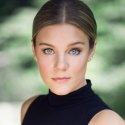
|
Cadie J. BryanNajade |
A former Marion Roose Pullin Arizona Opera Studio Artist, Louisiana-born soprano Cadie J. Bryan has been praised by Opera News as “sparkling” and “pertly pealing”. Recent highlights include a number of house debuts including The Dallas Opera in concert for the Hart Institute for Women Conductors, Opera Las Vegas as Addie Mills in the west coast premiere of Ricky Ian Gordon’s The House Without a Christmas Tree, and The Atlanta Opera as Berta in The Barber of Seville, as well as a return to Arizona Opera to reprise the role of Despina.
In the summer of 2021, she debuted the roles of Clarine in Rameau's Platée under the baton of Gary Thor Wedow, and Prilepa in Queen of Spades as an Ensemble Artist at Des Moines Metro Opera. Prior to the COVID-19 shut down, she was slated to sing the role of Naiade in Ariadne auf Naxos at Arizona Opera where she completed two years as a Marion Roose Pullin Studio Artist (2018-2020). In her final season, she performed four main stage roles including Bess in Craig Bohmler’s Riders of the Purple Sage, Musetta in La Bohème, Lucy in Fellow Travelers, and Maid in the Taliesin West Premier of Daron Hagen’s Shining Brow.
In her 2018-2019 season, she made her main stage debut at Arizona Opera as Chan Parker in Daniel Schnyder's and Bridgette Wimberly’s Charlie Parker’s Yardbird, as well as Annina in La Traviata, and Susanna in Le nozze di Figaro. As an apprentice artist at Des Moines Metro Opera, she made her main stage debut as the Second Wood Sprite in an Emmy Award-winning production of Rusalka (2017).
Bryan is an alumnus of Ravinia’s Steans Institute for singers (2017, 2018) where she studied and performed in a variety of art song and Lieder recitals with world-renowned pianists and coaches. Other career highlights include Clara in Jake Heggie’s and Gene Scheer's It’s A Wonderful Life (2017), Marian in The Music Man (2017), Zerlina in Don Giovanni (2014), and Lisette in La Rondine (2014).
She received a Master of Music and a Performance Diploma from the Indiana University Jacobs School of Music under the tutelage of soprano Heidi Grant Murphy and her Bachelor of Music from Louisiana State University with baritone Dennis Jesse.

|
Katherine BeckDryade |
Hailed by the Boston Globe as “balmy-voiced” and for her “uniformly excellent” performances, mezzo-soprano Katherine Beck returns to Rossini in the 2025/26 Season, making a debut at Opera Philadelphia as Marquise Melibea in Il viaggio a Reims and returning to Arizona Opera as Angelina in La Cenerentola. Last season, she returned to Rosina in The Barber of Seville with Minnesota Opera as well as to the Nashville Symphony for Handel’s Messiah and joined Odyssey Opera as Myrrhine in Adamo’s Lysistrata in the 2024/25 Season.
In recent seasons, she made her first return to Arizona Opera for Dorabella in Così fan tutte and subsequently to create the role of Elizabeth Lavenza in the World Premiere of Kallor’s Frankenstein. She sang Rosina in The Barber of Seville with Florentine Opera, joined the Opera Festival of Chicago as Isabella in Rossini’s rarely-performed L’inganno felice, and sang her first performances of Lola in Cavalleria rusticana with James Gaffigan conducting the Saint Louis Symphony Orchestra. She also joined the Lyric Opera of Chicago for its productions of Le comte Ory and La Cenerentola, Metropolitan Opera for Akhnaten, and Dallas Opera for Così fan tutte. Her recent concert performances include Handel’s Messiah with the Florida Orchestra
She made her debut with the Lyric Opera of Chicago whilst a member of the Ryan Opera Center as Wellgunde in Twilight: Gods, a reimagining of the final chapter of Wagner’s Der Ring des Nibelungen. She also joined Music Director Enrique Mazzola for songs of Donizetti and Verdi on the "Sole e Amore" digital recital program, sang excerpts of Marquise Melibea in Il viaggio a Reims on the Rising Stars Concert and of the title role of Carmen at “Sunday in the Park” at Millennium Park, and performed repertoire from classical to jazz to Broadway on concerts online and via WFMT.
She is also an alumna of the Marion Roose Pullin Opera Studio and has previously sung Cherubino in The Barber of Seville, Mary Johnson in Spears’ Fellow Travelers, Flora in La Traviata, Madeleine Audebert in Puts’ Silent Night, and Catherine Wright in Hagen’s Shining Brow with the company. Beck made her Santa Fe Opera debut as Karolka in Jenůfa while an Apprentice Artist and sang her first performances of Sesto in Giulio Cesare with Pittsburgh Festival Opera. She recently joined Opera Buffs in Los Angeles as Angelina in La Cenerentola following earlier performances of Mercedes in Carmen. With Opera Colorado, she created the role of Lisette in Cohen’s Steal a Pencil for Me with Opera Colorado and sang previous performances of La Cenerentola in student performances.
She has partnered with pianist Craig Terry in recital for Florentine Opera, SUNY Potsdam, and in Vermont. She is a two-time Vocal Arts Fellow of the Tanglewood Music Center, at which she was able to indulge her love for art song and chamber music. In the summer of 2018, she premiered Gandolfi’s In America, composed in commemoration of Bernstein’s Songfest, with orchestra. Also there, she sang a recital of French chanson with Roger Vignoles and a concert celebrating humor in music with Stephanie Blythe and Dr. Alan Smith. Elsewhere on the concert stage, she has sung excerpts of La clemenza di Tito with the Phoenix Symphony Orchestra on its Mozart and Schubert Chamber Festival, Mozart’s Requiem at Scripps College, Mendelssohn’s Elijah at Williams College, and Handel’s Messiah for many consecutive years in Arlington, Vermont. She has also been featured at the oldest church in New England in her hometown of Bennington, Vermont, singing Bach’s Geist und Seele wird verwirret, BWV 35 and Vergnügte Ruh, beliebte Seelenlust, BWV 170. In the crossover realm, she joined the Boston Pops both at Symphony Hall and Tanglewood for the premiere of Sondheim and Lapine’s Sondheim on Sondheim.
Beck is a winner of the prestigious George London Foundation Award, the LuminArts Vocal Fellowship in Chicago, and second place in the Annapolis Opera Vocal Competition. She is also a former semi-finalist of the Metropolitan Opera National Council Auditions. She earned her Master of Music degree from the Thornton School of Music at the University of California, at which she sang Béatrice in Béatrice et Bénédict and Sesto in La clemenza di Tito, and her Bachelor of Music degree from the Crane School of Music at the State University of New York at Potsdam.

|
Kaitlyn SabrowskyEcho |
American soprano and Phoenix resident Kaitlyn Sabrowsky (nee Johnson) is at home in operatic repertoire ranging from classical to contemporary. Sabrowsky completed two seasons as a Marion Roose Pullin Arizona Opera Studio Artist from 2018-20, highlighted by back-to-back main stage leading roles as Musetta in La Bohème and Jane Withersteen in Riders of the Purple Sage in the company’s 2020 season. Her Jane garnered praise for her “strong dramatic voice and the kind of acting skills that showed her character’s growth from one scene to the next” (Operawire). Other Arizona Opera role highlights include Miss Lightfoot in Fellow Travelers and Doris Parker in Charlie Parker’s Yardbird. Additional notable engagements include her debut with The Phoenix Symphony and as Frasquita in the Atlanta Opera’s Carmen. Often celebrated on the operatic stage for her "powerful and dramatic soprano," (The Bloomington Herald-Times), Sabrowsky has appeared in such roles as Donna Anna in Don Giovanni and the title role in Catán’s Florencia en el Amazonas. Kaitlyn Sabrowsky is the recipient of awards from the Orpheus Vocal Competition, the Metropolitan Opera National Council Auditions, the Georgina Joshi International Fellowship from Indiana University and the Farb Family Outstanding Graduate Award from Rice University. She is a graduate of Indiana University (MM) and Rice University (BM, cum laude), and is an alumnus of the Institute for Young Dramatic Voices, Aspen Opera Center and Houston Grand Opera’s Young Artist Vocal Academy. Sabrowsky is currently completing her doctoral degree at Arizona State and is an active voice teacher throughout the Valley, teaching students at Grand Canyon University and privately through the Sabrowsky Song Studio.




